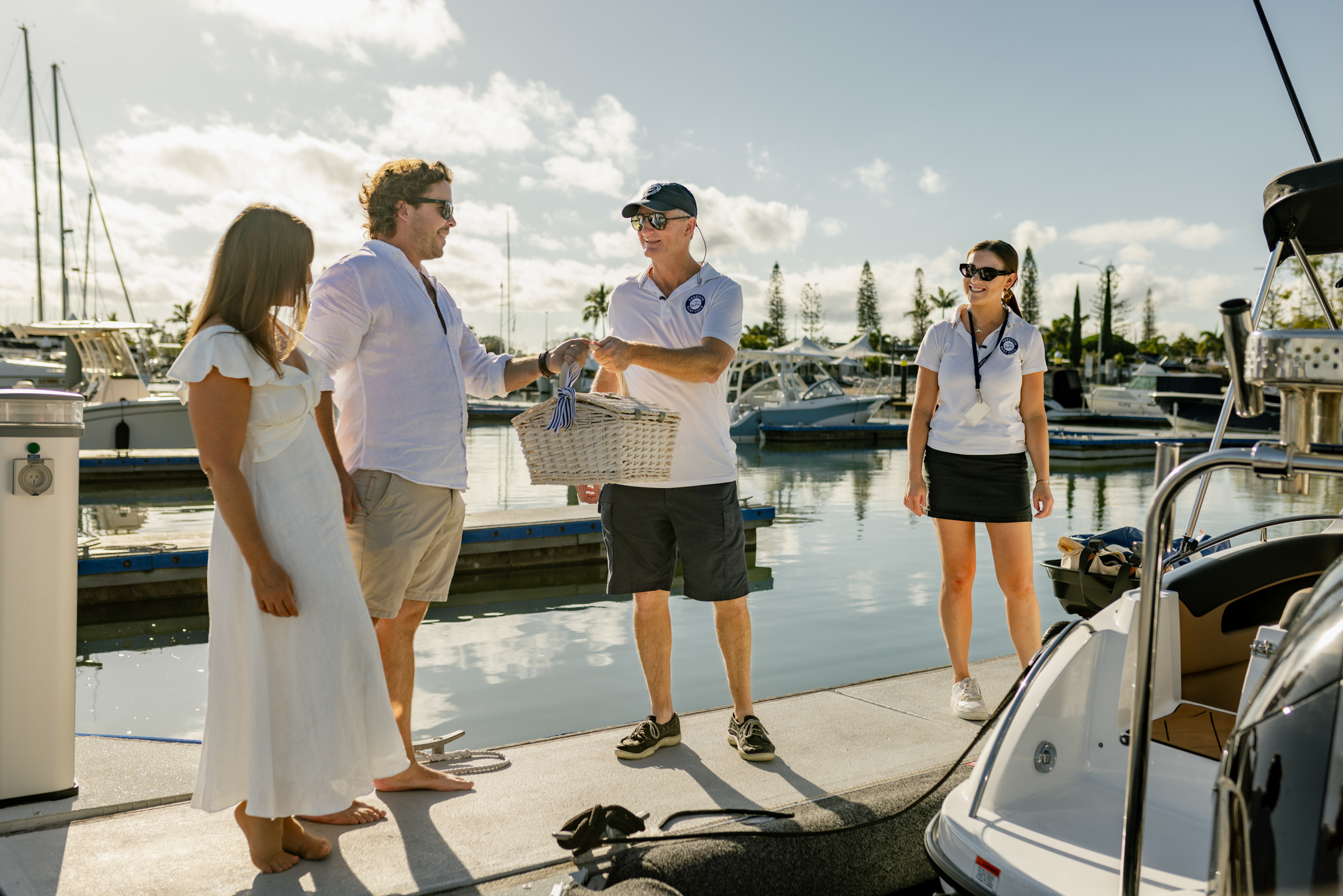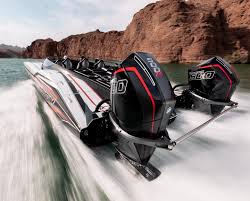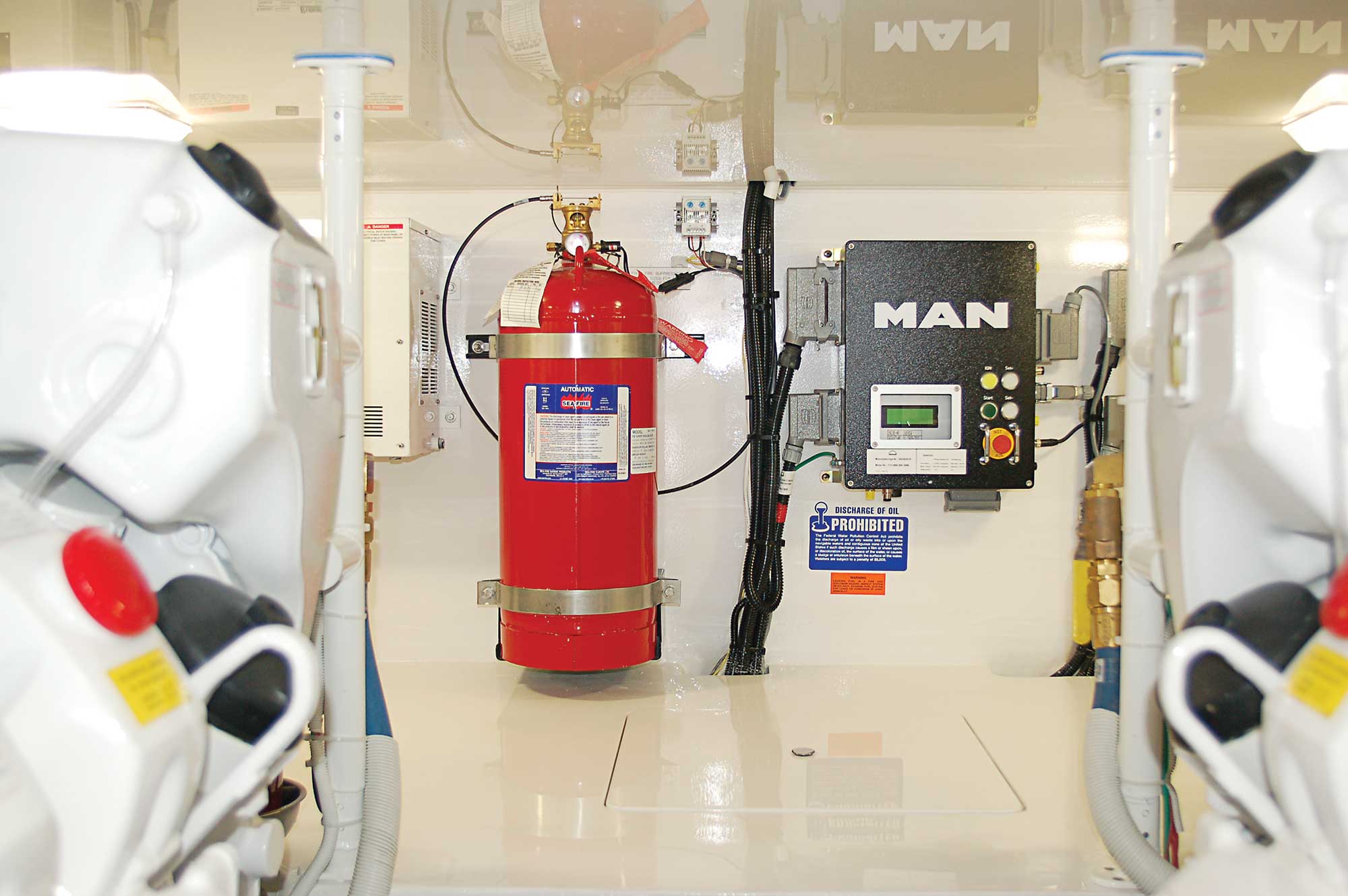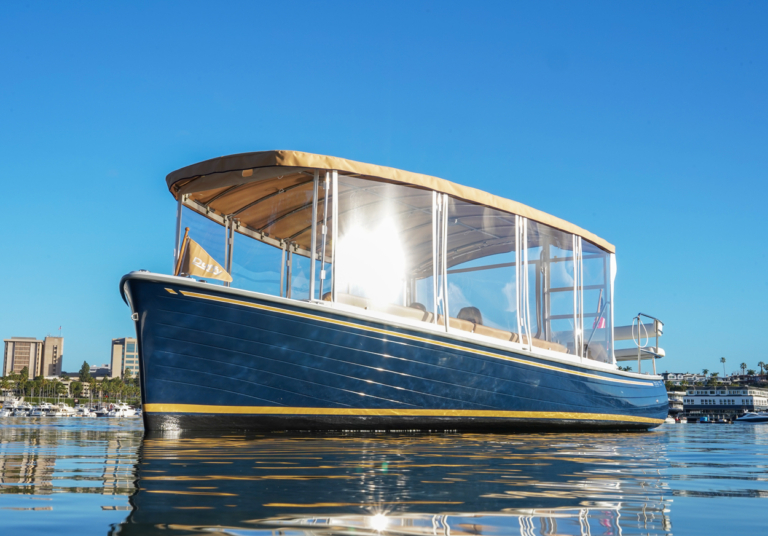Used Pontoon Boats for Sale: Expert Guide on Making a Smart Purchase
Pontoon boats are a popular choice for those who enjoy spending leisure time on the water. These versatile vessels provide ample deck space, making them suitable for a variety of activities and catering to diverse preferences.

When purchasing a used pontoon boat, it's essential to be well informed about the process to ensure a satisfying experience and make a wise investment.
To make the best decision when buying a used pontoon boat, potential buyers should take time to understand the different types and features of these boats.
Additionally, it's important to compare available options, carefully evaluate the condition of each potential purchase, and be prepared to negotiate the right price.
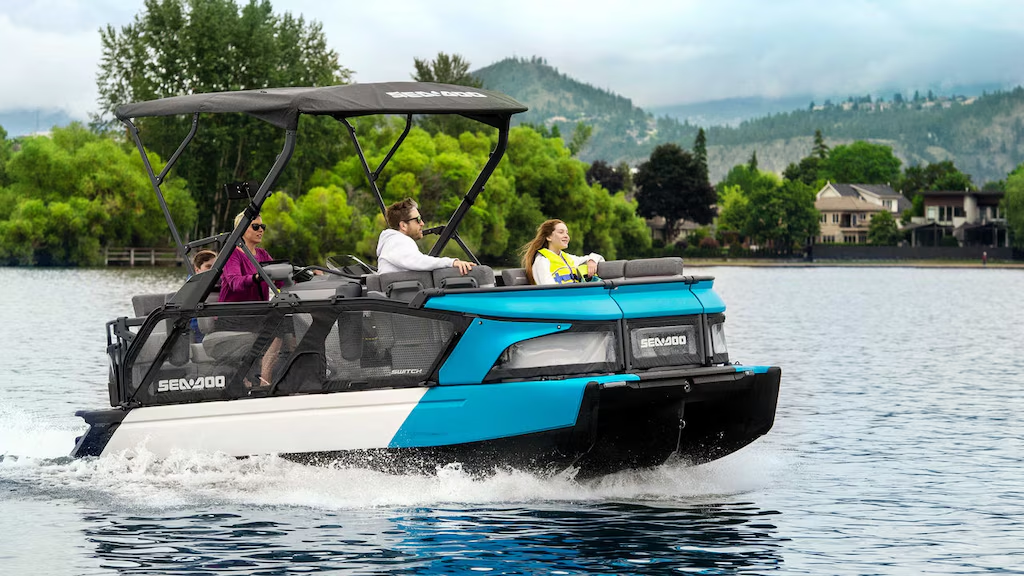
By doing thorough research and following expert advice, buyers can be confident in their purchase while enjoying the benefits of owning a pontoon boat without the cost of a brand-new model.
Key Takeaways
- Understand different pontoon boat types and features to make an informed decision
- Thoroughly evaluate the condition of used pontoon boats before purchasing
- Be prepared to negotiate and make wise investment decisions when buying used pontoons
Understanding Pontoon Boats
History and Popularity
Pontoon boats have been a popular choice for recreational boating since the mid-1900s. These versatile vessels were initially designed to provide stability on lakes compared to other boat types. Over time, pontoon boats have evolved to cater to various activities such as fishing, watersports, or leisure cruising, making them a popular choice for inland water locations.
Types of Pontoon Boats
Pontoon boats can be broadly categorized into two types:
- Standard Pontoon Boats: These boats feature a simple design with two pontoons connected by a flat deck. They are perfect for leisurely cruises, fishing, and entertaining family and friends.
- Tritoon Boats: Tritoon boats, as the name suggests, have three pontoons, offering increased stability, better performance, and higher weight capacity. These boats are suitable for rougher waters and are ideal for watersports like wakeboarding or water skiing.
In addition to the standard and tritoon variants, pontoon boats can be further specialized based on the intended use. For example, fishing pontoon boats come with added features such as rod holders, tackle storage, and live wells to cater to fishing enthusiasts.
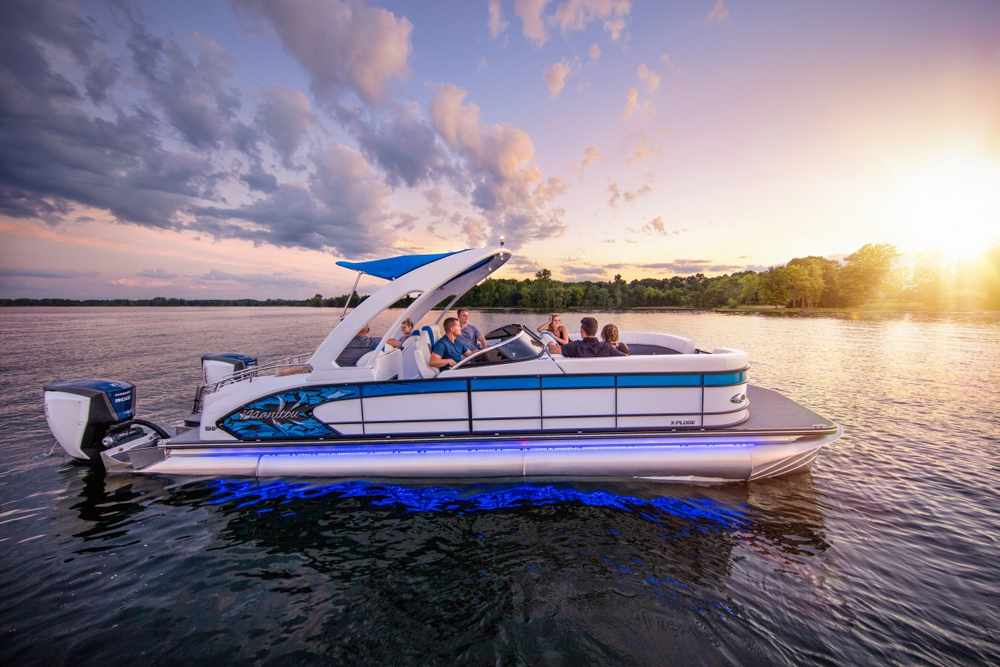
Tritoon vs. Standard Pontoon
When deciding between a tritoon and a standard pontoon boat, it's essential to consider various factors, such as:
- Performance: Tritoon boats generally provide better performance due to the added buoyancy and improved weight distribution. They can accommodate larger engines, enabling smoother handling and higher top speeds.
- Stability: The extra pontoon in a tritoon provides better stability when navigating through rough waters or during activities like watersports.
- Weight Capacity: With the added buoyancy from the third pontoon, tritoon boats have a higher weight capacity and can accommodate more passengers, gear, and accessories.
- Price: Tritoon boats are typically more expensive due to the added pontoon and increased performance capabilities.
Ultimately, your choice between a tritoon and a standard pontoon boat will depend on your intended usage, budget, and personal preferences.
Preparing for Your Purchase
Setting a Budget
Before you start looking at used pontoon boats for sale, it's essential to set a budget for your purchase.
Consider how much you can afford to spend without putting strain on your finances. Remember, in addition to the boat's purchase price, you'll also need to account for expenses such as maintenance, insurance, and storage.
A well-thought-out budget will help you make a more informed decision when selecting a pontoon boat.
New vs. Used Pontoon Boats
Now that you've set a budget, you should compare the benefits of purchasing a new pontoon boat to those of buying a used one.
New pontoon boats offer the advantage of modern features and an extended warranty, but they may be more expensive than their used counterparts.
On the other hand, used pontoon boats can be more affordable and still offer great quality, particularly if previous owners have kept them in good condition.
Some reputable pontoon boat manufacturers you may consider for both new and used boats include Sun Tracker, Harris, Bennington, and Sylvan.
When comparing the benefits and drawbacks of new vs. used, take into account your budget constraints and how the available options align with your preferences.
Researching the Market
To ensure you're making an informed purchase decision, it's vital to conduct thorough research on the used pontoon boat market.
Begin by investigating different boat models, making note of their various features and prices.
As a starting point, here's an overview of some popular pontoon boat manufacturers to consider:
| Manufacturer | Model | Key Features |
|---|---|---|
| Sun Tracker | Party Barge | Comfortable seating, ample storage, Bluetooth® stereo |
| Harris | Cruiser | Sophisticated design, innovative technology, spacious layout |
| Bennington | SX Series | High-quality construction, performance options, various floor plans |
| Sylvan | L-Series | Strong performance, luxury features, optional floor plans |
Next, familiarize yourself with used pontoon boats' typical market prices and monitor local listings for available boats.
Reach out to local dealerships and review online forums to learn more about the reputation and performance of different boat models.
Research is crucial for understanding fair market values, identifying potential bargains, and avoiding overpriced options.
Where to Buy
Dealerships vs. Private Sellers
When looking to buy a used pontoon boat, you generally have two options: dealerships and private sellers.
Dealerships typically offer a wider selection of boats, as well as professional assistance in selecting the right model and features. They may also provide warranties on the boats they sell.
However, purchasing from a dealership can sometimes be more expensive due to added fees and negotiation processes.
On the other hand, private sellers often offer more competitive prices and a more personal buying experience.
However, buying from a private individual can come with risks, such as lack of warranties and the potential for undisclosed issues with the boat.
Online Marketplaces
Several online marketplaces provide listings for used pontoon boats.
Websites like Boat Trader and PontoonsOnly are popular resources that help in searching for used boats in multiple states, including CA and AZ.
These sites allow you to filter your search based on factors such as price, length, horsepower, and location.
When using these platforms, make sure to carefully evaluate the condition of the boat and communicate with the seller to ensure a smooth transaction.
Boat Shows and Auctions
Boat shows and auctions are other avenues to explore when searching for used pontoon boats.
Boat shows, which take place year-round in various locations across the United States, offer opportunities to see a wide range of models and speak with dealers and manufacturers. They also allow potential buyers to compare different boats side by side.
Auctions, on the other hand, may offer a chance to purchase used pontoons at a lower price. However, buying at an auction may also come with risks, as the buyer may not have the opportunity to fully inspect the boat prior to purchase.
Evaluating a Used Pontoon Boat
Inspection Checklist
Before purchasing a used pontoon boat, it is essential to conduct a thorough inspection.
Here is an inspection checklist to ensure that you cover all important aspects:
- Motor: Confirm whether it's a gas or an electric motor. Check for signs of wear, corrosion, and maintenance records.
- Trailer: Ensure it's in good condition, has working lights, and is appropriate for the boat's size.
- Hull and Deck: Inspect for any structural damage, dents, or cracks.
- Furniture: Examine seats and upholstery for any rips, stains, or mildew.
- Electrical system: Test all lights, controls, and accessories to ensure they are functioning properly.
- Colors: Inspect the exterior for any fading or discoloration.
Assessing Boat Condition
The condition of a used pontoon boat plays a significant role in its valuation and is often related to its history and maintenance. A well-maintained boat will show fewer signs of wear and tear than a neglected one.
Assess the boat's condition by considering these factors:
- Age: Older boats may require more repairs and replacements, which can affect the price.
- Usage: A boat frequently used in saltwater may have more corrosion and wear.
- Maintenance records: A boat with a consistent maintenance history is more likely to be in good shape.
- Cleaning and storage: A pontoon boat that has been stored under cover and cleaned regularly will likely have less mold, mildew, and overall wear.
Keep in mind that each used pontoon boat is unique in terms of its condition and damages, so it's essential to carefully inspect it before making a decision.
Test Drive and On-Water Evaluation
Lastly, before finalizing your purchase, always take the boat for a test drive to ensure that it performs as expected on the water.
Observe the following during your on-water evaluation:
- Acceleration: Check how quickly the boat accelerates and whether the throttle response is smooth.
- Handling: Assess the boat's maneuverability and responsiveness to steering inputs.
- Stability: Ensure the pontoon boat remains steady and balanced, even when turning.
- Braking: Test the reverse thrust to validate the boat can stop effectively.
- Noise: Listen for any unusual sounds or vibrations while the boat is in operation.
Once you've completed the evaluation, compare your findings to the average values of similar pontoon boats to make an informed decision.
Making the Purchase
Negotiating the Price
When purchasing a used pontoon boat, it's important to negotiate a better price.
Start by researching the market value for the specific make, model, and year of the boat. You can find this information through online resources or boat valuation guides.
- Inspection: Conduct a thorough inspection of the boat to identify any potential issues or damages. This includes checking for rust, dents, and mildew.
- Maintenance Records: Review the maintenance records to ensure the boat has been well maintained and assess if any major repairs are required.
- Test Drive: Take the boat for a test drive to evaluate its performance and engine sound.
During negotiations, be sure to highlight any issues you discovered during your inspection and provide any relevant repair estimates to help justify your proposed price.
Completing the Paperwork
Proper documentation is essential when purchasing a used pontoon boat.
Ensure all necessary paperwork, such as the bill of sale and title, is completed and verified. Additionally, check for any liens, as these need to be resolved prior to the transaction.
The Bill of Sale should include:
- Seller's and buyer's full names and contact information.
- Description of the pontoon boat (make, model, year, hull identification number).
- Selling price and payment terms.
- Date of the transaction and signatures of both parties.
Securing Financing and Insurance
If you need a loan to purchase the used pontoon boat, explore various financing options available from banks, credit unions, or specialized marine finance companies.
Compare interest rates, loan terms, and payout penalties before making a decision.
When it comes to insurance, consult with an insurance agent who specializes in marine insurance to ensure you get the right coverage for your needs.
Factors that influence insurance rates include the boat's make, model, age, and engine type. Additionally, factors like where you will use the pontoon boat and its intended purpose play a role in determining coverage needs.
Post-Purchase Considerations
After buying a used pontoon boat, there are several important factors to consider that will help you ensure your investment is well protected and optimized for your needs. In this section, we'll discuss Transportation and Storage, Maintenance and Upkeep, and Customization and Upgrades.
Transportation and Storage
Once you have purchased your used pontoon boat, proper transportation and storage are essential.
First, considering the size of your boat, such as a 22' pontoon, you'll need a suitable trailer to transport it safely and efficiently. It is imperative to select a trailer that can handle the weight and size of your boat.
When it comes to storage, you have several options:
- Dry stacking, which allows you to store your boat in a protected area
- Slip storage, in which the boat is kept in the water at a marina
- In some cases, a storage canopy can be mounted on your trailer to keep the boat protected
Each storage option has its own set of benefits, and you should weigh the pros and cons based on your needs and location.
Maintenance and Upkeep
Maintaining a used pontoon boat is critical to ensuring its longevity and performance.
Regular maintenance includes:
- Cleaning the boat’s interior and exterior
- Inspecting and repairing any signs of wear and tear, such as scuffing or rust
- Checking the functionality of key components, like the engine, electrical system, and steering
It's essential to establish a maintenance routine adapted to the specific water environments where you use your boat, whether it's freshwater or saltwater.
Customization and Upgrades
Since pontoon boats are versatile, you can customize and upgrade them according to your preferences and needs.
Some popular customizations include:
- Adding bimini tops, for extra sun protection
- Installing new seating or storage compartments
- Upgrading the sound system, lighting, or navigation systems
These improvements can not only enhance your overall boating experience but also potentially increase the resale value when you decide to sell your used pontoon boat.
Activities and Uses
When considering buying a used pontoon boat, it's essential to understand the various activities and uses these versatile watercraft can offer.
Recreational Activities
Pontoon boats are perfect for leisurely cruises and relaxation on the water. They typically have comfortable seating arrangements and ample space for lounging.
Additionally, many pontoons have built-in features for entertaining, such as:
- Sun decks: These flat surfaces are perfect for soaking up the sun or enjoying a picnic with friends and family.
- Grills: Some pontoon boats come equipped with a built-in grill, making it easy to cook up a delicious feast while out on the lake.
- Sound systems: Quality sound systems on pontoon boats allow you to play your favorite tunes while cruising.
Due to their stable design, pontoon boats can be used on various bodies of water, including lakes and calm rivers.
Fishing and Watersports
Fishing enthusiasts can also benefit from owning a pontoon boat. These boats provide a spacious platform for casting lines and can be easily outfitted with fishing-specific features such as rod holders, fish finders, and live wells.
With their stable platform, picking the ideal fishing spot is a breeze.
Pontoon boats can also be used for various watersports, such as water skiing, tubing, and wakeboarding, by attaching a tow bar or ski tow pylon. Its configuration allows friends and family to comfortably join in the fun.
Pontoon Boating Communities
Pontoon boat owners often gather to create a sense of community on and off the water. These boating communities engage in activities like scenic group cruises, dockside potluck gatherings, and fun watersports sessions. Being part of such a community can add even more enjoyment to your pontoon boat experience.
Frequently Asked Questions
What should I look for when buying a used pontoon boat?
When purchasing a used pontoon boat, pay close attention to its condition and any visible damages.
Check for scuffing, rust, dents, dings, scratches, mold, and mildew both on the interior and exterior.
Inspect the boat thoroughly and assess its overall maintenance, engine, and electrical systems.
Additionally, consider the type of water the boat has been used in and how well it has been maintained.
Where is the best place to find used pontoon boats for sale?
There are several places to find used pontoon boats, including online marketplaces, local boat dealers, and personal networks.
Check online platforms like Craigslist, eBay, and Facebook Marketplace, as well as specialized websites focusing on boat sales.
Referrals from friends or family can also be a helpful lead.
How can I assess the condition of a used pontoon boat before purchasing?
Thoroughly inspecting the boat is key to assessing its condition.
Check for any visible signs of damage, corrosion, or wear and tear.
Test the engine and electrical systems, and examine riggings and lines.
Ask the seller questions about maintenance and repairs as well.
It is also advisable to hire a marine surveyor for a more detailed evaluation, especially for higher-value purchases.
What are common pitfalls to avoid when buying a used pontoon boat?
Some common pitfalls to avoid include:
- Not inspecting the boat thoroughly
- Ignoring maintenance and repair history
- Focusing solely on price without considering the boat's overall condition
- Not checking the boat's ownership and registration documents
- Skimping on a marine survey when it comes to high-value purchases
How do I determine the fair market value of a used pontoon boat?
To determine the fair market value of a used pontoon boat, you can rely on resources like the NADA Guides and BUCValu.
These guides provide information on pricing, depreciation, and the overall condition of used boats.
You can also consult local dealerships and online sales listings to see the average prices of similar pontoon boats in your area.
What are the best practices for conducting a transaction for a used pontoon boat?
The best practices for conducting a transaction when buying a used pontoon boat include the following:
- Check the boat's ownership and registration documents to ensure it is free of debt or outstanding liens.
- Negotiate a fair price based on the market value. Also, consider the overall boat condition and included accessories or equipment.
- Draft a bill of sale that accurately reflects the terms of the transaction.
- Arrange the payment method to your and the seller's satisfaction. This could be cash, check, or bank transfer.
- If required, transfer the title, registration, and necessary permits into your name.
Charlie is Editor-in-Chief of Sea Magazine
